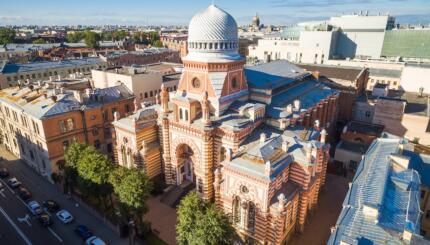Ari Alexander is guest blogging (via Blackberry) from the World Conference on Dialogue in Madrid, organized by the Muslim World League under the patronage of King Abdullah of Saudi Arabia.
20 hours after King Abdullah opened this conference, I sit in ‘closed door’ session #2 (3 and 4 are later today), and I can’t count 20 women in the room, and that includes interpreters and conference logistics personnel.
The subject of female participation is one that can be all too easily dismissed by men. We can analyze and assess the proceedings here without mentioning this glaring absence of women. The first time I experienced this radical imbalance was at the rabbis and imams for peace congress in brussels in ’05. At the time it seemed absurd, if somehow understandable.
I thought that discussion of gender – specifically the exclusion of female rabbis, for example, so that orthodox rabbis would attend, was justifiable in light of the importance of the dialogue. My position in that sense hasn’t changed much. I don’t take the view ‘better not to have such conferences at all than to have them with only men’ but I am pausing to reflect.
We are, B”H well beyond a world of women as travel companions. Here in the state of saudi-in-spain, however, this +1 world is alive and well.
But let us be clear. It is easy to point the finger at saudi because of the well-known, infamous law that bars women from driving in the kingdom, and other conservative, ‘backward’ restrictions. But ask yourself honestly how gender-representative the leadership of your board is, the decision-makers in your city, the editorial committee of your favorite newspaper, the trustees of your bank.
The inclusion of women (often framed problematically as such – implying men’s right to include or not to include) is an embarrassment in our contemporary world. And it is far more psychologically convenient to criticize someone else.
The saudi organizers should not be immune from criticism for their failure to make this historic gathering mirror the communities the leaders here represent. But be sure not to forget what we can each do in our spheres of influence to bring more women to the center of decision-making tables. Every country, religion and community can benefit from making this a priority.
I was struck by how overwhelmed and out of place a woman here seemed to me as we dined together last night. She turned out to be a very high ranking UN official here to represent the secretary-general. In this socially conservative gathering, a woman who has lived all over the world, given 25 years to the management of peacemaking operations and been flown around from region to region to share her expertise – is a footnote – just as I probably am, having accomplished none of what she has.
But I can shmooze here as only bearded men who can get by with a bit of arabic can shmooze. This is my ‘Ali’ principle – when I say my name to arabs, they routinely – due to my erroneous pronunciation – think that I say ‘Ali’ rather than ‘Ari’.
We make a connection – because they think my name is the same as their son’s name and then we share laughter over the mistake and then we talk about my travels and interests, and to the extent that I could ever be, I’m ‘in’ and that is part of my male privilege in a place like this and in this sphere of dialogue more generally.
We’re not close to where we need to be. But the world indeed has a bit more light with each version of a ground-breaking conference – warts and all.


